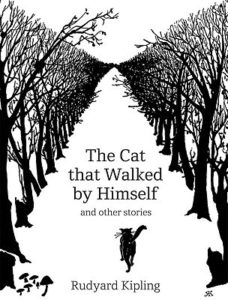 More than a policy and statistical objective, “no-kill” is a principle, an ethic, and once applied the practical consequences begin to fall into place. The principle is that animal shelters should apply the same criteria for deciding an animal’s fate that a loving pet guardian or conscientious veterinarian would apply. That is, healthy and treatable animals are not killed simply because of a lack of room or resources to care for them. Continue reading “Applying the No-Kill Ethic by Ed Boks”
More than a policy and statistical objective, “no-kill” is a principle, an ethic, and once applied the practical consequences begin to fall into place. The principle is that animal shelters should apply the same criteria for deciding an animal’s fate that a loving pet guardian or conscientious veterinarian would apply. That is, healthy and treatable animals are not killed simply because of a lack of room or resources to care for them. Continue reading “Applying the No-Kill Ethic by Ed Boks”
Business-Savvy Landlords Allow Pets: Cities Should Make it the Default
 Imagine being responsible for the life or death of 55,000 dogs and cats every year. As the General Manager for the City of Los Angeles Animal Services Department, the desperate need of these animals weighed on my mind every day. I was determined to end pet homelessness and the practice of killing and disposing of our society’s surplus companion animals.
Imagine being responsible for the life or death of 55,000 dogs and cats every year. As the General Manager for the City of Los Angeles Animal Services Department, the desperate need of these animals weighed on my mind every day. I was determined to end pet homelessness and the practice of killing and disposing of our society’s surplus companion animals.
Today, most cities and towns across the nation share this noble and ambitious goal. Achieving this requires robust community participation, and our cities desperately need the support of an overlooked constituency−landlords. Continue reading “Business-Savvy Landlords Allow Pets: Cities Should Make it the Default”
The 3 Deadly Sins: Cruelty, Neglect and Hoarding by Ed Boks

In Judeo/Christian literature the word “sin” originates from the idea of “missing the mark”. Our understanding of missing the mark has been explained by theologians through the ages as resulting from sins of commission and sins of omission.
While pondering this idea, I wondered how the concept of sin, or “missing the mark”, might apply to our responsibility for the environment and the animals who inhabit it. It occurred to me that there are three deadly sins we commit when we fail in our responsibility for animals: cruelty, neglect, and hoarding. Continue reading “The 3 Deadly Sins: Cruelty, Neglect and Hoarding by Ed Boks”
Think Globally, Give Locally by Ed Boks
 Imagine how you would feel if your boss told you he was so happy with your work performance that he decided to give a bonus to your coworker. I suspect you would be dumbfounded. Yet, in my line of work, it is not uncommon to hear, “I really love the work my local humane society does – so I sent a donation to the Humane Society of the United States (HSUS) or to the ASPCA (American Society for the Prevention of Cruelty to Animals) to help support you.”
Imagine how you would feel if your boss told you he was so happy with your work performance that he decided to give a bonus to your coworker. I suspect you would be dumbfounded. Yet, in my line of work, it is not uncommon to hear, “I really love the work my local humane society does – so I sent a donation to the Humane Society of the United States (HSUS) or to the ASPCA (American Society for the Prevention of Cruelty to Animals) to help support you.”
One of the greatest misunderstandings in most communities and biggest challenge animal welfare organizations face is the belief most people have that HSUS and the ASPCA are affiliated with local animal welfare organizations. Continue reading “Think Globally, Give Locally by Ed Boks”
Kapparot: 9th Circuit argument Tuesday
What is kapparot?

Kapparot or kaparos, meaning “atonements,” is a custom in which a chicken or money may be used. Kapparot using chickens is practiced by some Jews shortly before Yom Kippur, the Jewish Day of Atonement.
The ritual begins with selections from Isaiah 11:9, Psalms 107:10, 14, and 17-21, and Job 33:23-24 being recited. Then a rooster (for a man) or a hen (for a woman) is held above the person’s head and swung in a circle three times, while the following is spoken: “This is my exchange, my substitute, my atonement; this rooster (or hen) shall go to its death, but I shall go to a good, long life, and to peace.” The chicken is then slaughtered and may or may not be given to the poor for food. Continue reading “Kapparot: 9th Circuit argument Tuesday”
Do Cats Need Us? by Ed Boks
 It appears Rudyard Kipling may have been correct when he suggested cats walk by themselves and don’t need us to feel secure.
It appears Rudyard Kipling may have been correct when he suggested cats walk by themselves and don’t need us to feel secure.
A study released by the University of Lincoln concluded that cats, unlike dogs, do not need humans to feel safe, preferring to look after themselves.
Earlier research had suggested cats show signs of separation anxiety when left alone by their owners, in the same way dogs do, but the results of this study found they are much more independent than canine companions – and what we had interpreted as separation anxiety might actually be signs of frustration. Continue reading “Do Cats Need Us? by Ed Boks”
Know when the human/dog bond can bite you in the face by Ed Boks
 A study conducted jointly from Monash University in Australia and Pedigree Petfoods found that the bond between a human and a dog may actually cause their heartbeats to sync with one another.
A study conducted jointly from Monash University in Australia and Pedigree Petfoods found that the bond between a human and a dog may actually cause their heartbeats to sync with one another.
The researchers connected three pairs of dogs and their owners to heart rate monitors. After separating the dogs from their owners for a period of time they brought the pairs together again and observed their heartbeats. They found that within a minute both heartbeats dropped significantly and “even appeared to mirror each other.” Continue reading “Know when the human/dog bond can bite you in the face by Ed Boks”
Is your pet suffering? by Ed Boks

The New York Times recently ran a piece by Jessica Pierce asking the provocative question “Is your pet lonely and bored?” Today there are as many pets in the United States as there are people; and in most homes pets are family — and not just dogs and cats, but rabbits, rats, bearded dragons and snakes.
According to many veterinarians and psychologists this phenomenon is evidence of a deepening “human-animal bond.” Scientists studying animal cognition and emotion are continually peeling back the mysteries of animal minds, revealing an incredible and often surprising richness in the thoughts and feelings of other creatures. Continue reading “Is your pet suffering? by Ed Boks”
Polls Show Younger Travelers Shun Attractions That Exploit Animals by Ed Boks

September 27th is World Tourism Day. That makes this a good day to consider the impact this trillion-dollar industry has on wildlife.
A recent poll suggests young travelers are becoming increasingly aware of the impact tourism has on animals. This awareness is influencing their travel choices for the better. Continue reading “Polls Show Younger Travelers Shun Attractions That Exploit Animals by Ed Boks”
July 14: First World Chimpanzee Day by Jane Goodall

14th July 2018. The very first World Chimpanzee Day.
58 years to the day since I arrived for the very first time in what I then referred to, in my letters home, as “Chimpanzee Land”. At the time it was the Gombe Stream Chimpanzee Reserve in what was then Tanganyika – a British Protectorate. Today, of course, it is the Gombe National Park in the independent country of Tanzania.

I was 26 years old back then, and 58 years is a long time. But if I close my eyes and let my mind free to wander into the past, I can relive that boat ride along the shore of Lake Tanganyika. Continue reading “July 14: First World Chimpanzee Day by Jane Goodall”
